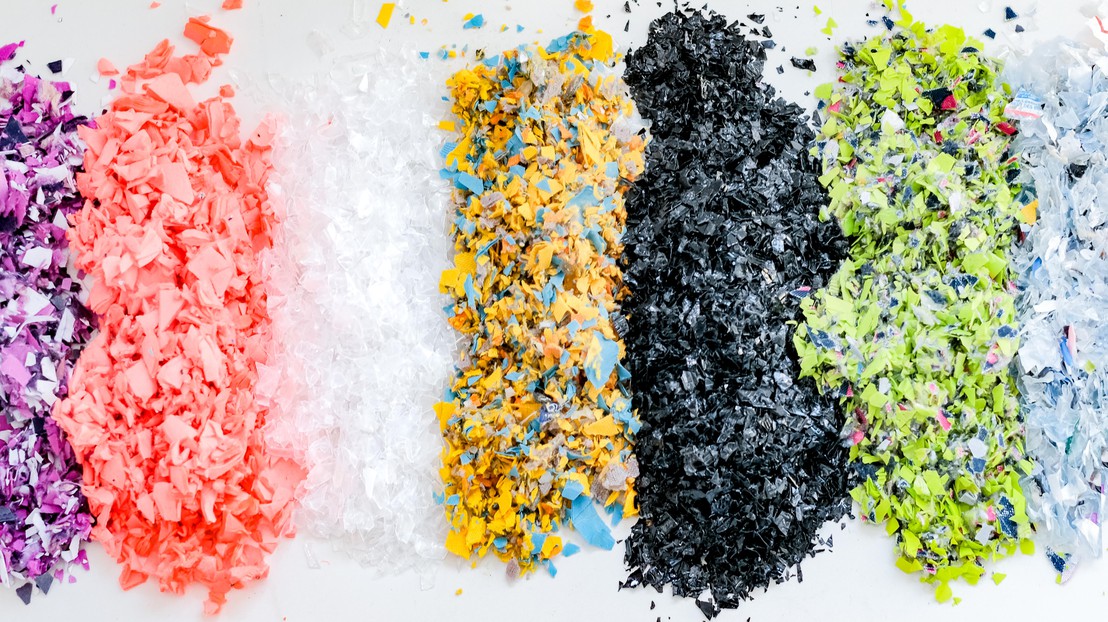Tokyo (SCCIJ) – The Swiss start-up DePoly has found an innovative way to fully recycle PET plastic. The spin-off company of the Swiss Federal Institute of Technology Lausanne (EPFL) was able to raise the necessary capital for a larger pilot plant.

A new Swiss process to recycle dirty or mixed PET plastics (© 2023 EPFL/DePoly - CC-BY-SA 4.0).
No need for sorting
The new method can recycle polyethylene terephthalate (PET) plastic at ambient temperature, even when it’s dirty or mixed with other plastics. “Since there’s no heating involved, our method preserves the integrity of other materials like cotton, which is often mixed with PET in clothing and other items”, says CEO Samantha Anderson.
DePoly confirmed the feasibility of its method with a pilot plant capable of processing 50 metric tons per year. Having recently raised 12.3 million francs, DePoly is now building a plant with 10 times that capacity. Scheduled to open in 2024 in Valais, it should prove that DePoly’s method is feasible at scale.
PET is a ubiquitous plastic used in everything from clothing and shoes to bottles and packaging. Because it’s recyclable, the material has earned solid green credentials. But in Switzerland, of the 45,000 metric tons of PET bottles produced annually, 20% end up being incinerated because they’re dirty or mixed with other plastics. However, the global PET recycling rate is less than 50%, much smaller than the Swiss rate of 80%.
From Ph.D. to start-up
CEO Anderson moved to Switzerland in 2015 for her Ph.D. When she first unveiled her PET recycling process, which she developed at EPFL’s Laboratory of Molecular Simulation (LMSO) in Sion, it seemed remarkably simple: plastics of all types and colors are mechanically ground and then mixed with various chemical compounds – the exact recipe for which is a closely guarded secret.
A few hours later, any non-PET plastics remain intact and can be separated for further processing. The PET, meanwhile, is broken down into terephthalic acid (a powder) and ethylene glycol (a liquid), which can be used to make new material.
The method slots seamlessly into existing recycling processes and could be adapted to other kinds of plastics. The company won the prestigious Venture Grand Prize in Switzerland for its technology and was listed as one of the top 100 Swiss startups for the past three years in a row.
Refined formula
After graduating in 2019, Anderson decided she wanted to use her expertise to do “something useful for society.” Together with DePoly’s other founders – Bardiya Valizadeh and Christopher Ireland – she spent months testing different formulas for her process. The breakthrough moment came late one Friday when, for the first time, she saw the PET start to decompose before her eyes.
By the time she returned to the lab on Monday morning, it had completely broken down. All that remained was for the team to refine the formula and adjust the dosages, hoping that their method would work for larger volumes of PET. Another advantage of her process: “The substances we use are available over the counter, and they aren’t single-use,” says Anderson.
Text: Cécilia Carron/EPFL CC BY-SA 4.0 (Editing by SCCIJ)





























